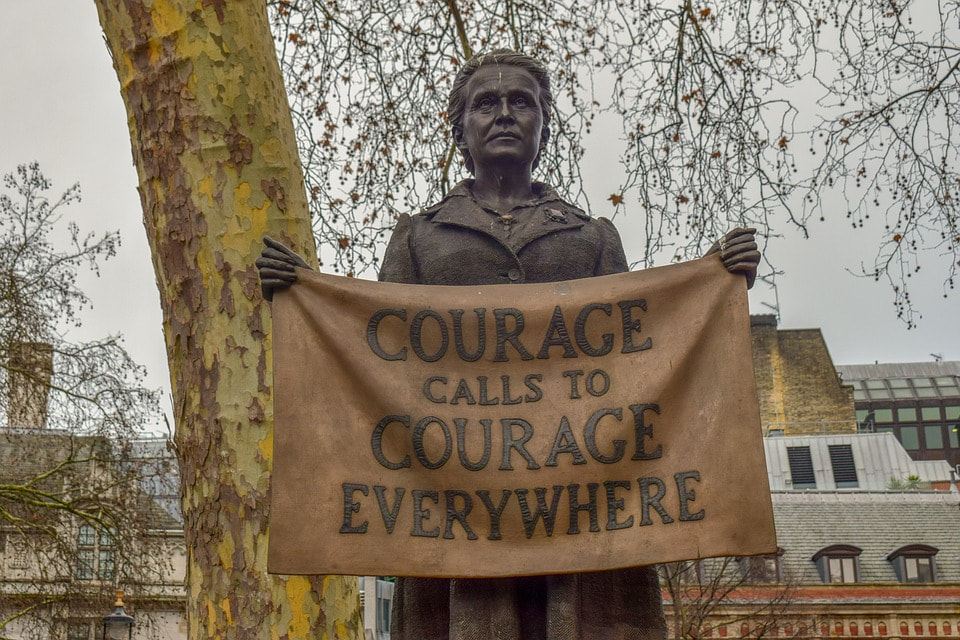|
By: C. Paixão The suffragettes were a group of women who fought for the right to vote in the late 19th and early 20th centuries. Their activism played a crucial role in the women's suffrage movement, which ultimately led to the passage of the 19th Amendment to the United States Constitution in 1920, granting women the right to vote. The suffragettes used a variety of tactics to draw attention to their cause. They organized public rallies and marches, wrote and distributed pamphlets and newsletters, and engaged in civil disobedience by staging sit-ins and protests. They were often met with hostility and violence from those who opposed their efforts, including law enforcement officials and members of the public. One of the most prominent suffragettes was Emmeline Pankhurst, who founded the Women's Social and Political Union (WSPU) in the United Kingdom in 1903. Under Pankhurst's leadership, the WSPU became known for its militant tactics, including hunger strikes and property damage. Pankhurst was arrested numerous times for her activism, but she continued to speak out for women's rights until her death in 1928. In the United States, suffragettes like Susan B. Anthony and Elizabeth Cady Stanton led the charge for women's suffrage. They founded organizations like the National Woman Suffrage Association and the National American Woman Suffrage Association, which worked to secure the right to vote for women through legislative and legal means. Anthony was famously arrested for voting in the 1872 presidential election, and Stanton played a key role in drafting the text of the 19th Amendment. The suffragettes faced significant opposition and criticism from their contemporaries and later generations. Some accused them of being overly aggressive and disruptive, while others argued that women did not have the intellectual capacity or moral fortitude to participate in the democratic process. Despite these obstacles, the suffragettes persisted in their efforts, inspiring future generations of women to fight for their rights and work toward greater gender equality. Today, the legacy of the suffragettes lives on in the ongoing struggle for gender equality. While significant progress has been made since the early 20th century, there is still much work to be done to ensure that women are afforded the same opportunities and rights as men. The suffragettes' courage and determination serve as a reminder that even the most daunting obstacles can be overcome through collective action and a commitment to social justice.
0 Comments
Leave a Reply. |
Categories
All
Archives
June 2024
|

